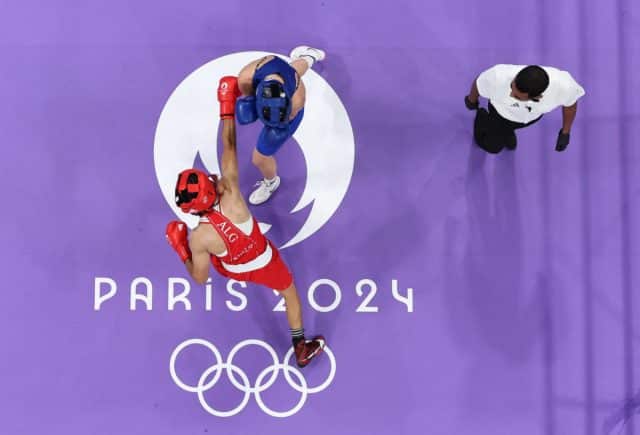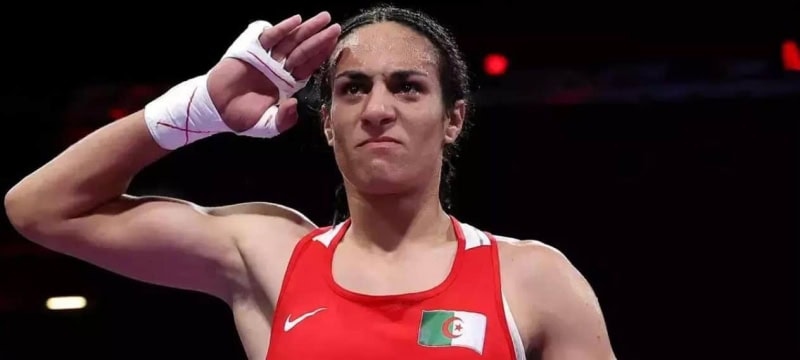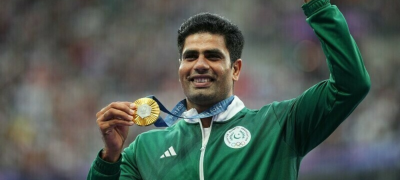Olympic boxer Imane Khelif expressed that the recent wave of hate she has experienced due to misconceptions about her gender is a severe infringement on human dignity. She called for an end to the bullying of athletes, highlighting how such negativity can have profound and damaging effects.
In an interview, Imane Khelif urged people globally to adhere to the principles of the Olympic Charter and to avoid bullying athletes, emphasizing that it can destroy their spirit and lead to division among people.
Read more: Paris Olympics 2024: Noah Lyles of the US Has Claimed the Title of World’s Fastest Man
Khelif and Taiwanese boxer Lin Yu-ting, both of whom have won their first Olympic medals in Paris, have faced significant online abuse stemming from unverified claims about their gender. This controversy reflects broader issues related to changing attitudes towards gender identity and sports regulations.
The 25-year-old Khelif admitted to the emotional toll of competing under these circumstances, away from home. She stays in touch with her family twice a week and hopes their concern for her is manageable. Khelif remains hopeful that a gold medal could serve as a powerful response to the adversity she has faced.

The backlash against Imane Khelif and Lin Yu-ting is rooted in allegations made by the International Boxing Association, which has been permanently barred from the Olympics. The association claimed that both athletes failed certain unspecified eligibility tests for the women’s category at last year’s world championships. Khelif chose not to comment on whether she had undergone any tests beyond doping checks, preferring to keep that information private.
Khelif expressed her appreciation to the International Olympic Committee and its president, Thomas Bach, for their unwavering support amid the controversy stirred by the now-banned boxing federation. She feels that the Olympic Committee’s actions have vindicated her, reflecting the truth of her situation.
In addition, Khelif has received significant support from spectators, who cheer her on and wave Algerian flags during her matches. She is scheduled to compete again in the women’s 66-kilogram semifinals at Roland Garros on Tuesday.
Imane Khelif is determined not to let negative comments or accusations deter her from her goal of winning Algeria’s first Olympic gold medal in women’s boxing.
“I don’t care about anyone’s opinion,” she stated after her victory over Hungary’s Anna Luca Hamori.
“I came here for a medal, and I’m focused on competing for it. I will strive to improve, just like every other athlete.”
Despite being aware of the global debate surrounding her, Khelif has kept her distance from social media. “I don’t follow social media,” she said. “There is a mental health team that helps us avoid social media, especially during the Olympics. I’m here to compete and achieve a good result.”
Khelif began her Olympic campaign with a win over Italy’s Angela Carini, who withdrew from the match after just 46 seconds. Carini later expressed regret and apologized to Khelif. This unusual outcome amplified the controversy around Khelif, with high-profile figures like former US President Donald Trump and author J.K. Rowling erroneously suggesting that Khelif was either a man or transgender.
The International Olympic Committee has consistently affirmed Khelif and Lin Yu-ting’s eligibility to compete, condemning the unclear testing protocols and lack of transparency of the International Boxing Association (IBA). The IBA was banned from the Olympics last year in an unprecedented decision.
The global scrutiny weighed heavily on Imane Khelif, and her victory over Anna Luca Hamori on Saturday seemed to be a release of that pressure. After the referee declared her the winner, Khelif went to the center of the ring, waved to her supporters, knelt, and struck the canvas with her hand, her smile giving way to tears.
Khelif shared in an interview that she was overwhelmed with emotion. “I couldn’t control my nerves,” she said. “The media frenzy and the victory mixed joy with the emotional toll of what I went through. It wasn’t easy at all and affected my dignity.”
Khelif had participated in IBA events without issue until she was suddenly suspended from last year’s world championships. The IBA, which has had ongoing conflicts with the IOC, has not disclosed details about the tests involved. Algeria’s national boxing federation remains a member of the IBA.
Hailing from rural northwestern Algeria, Khelif initially played soccer before developing a passion for boxing. Despite her father’s initial objections, she commuted by bus to train in a nearby town. After a challenging start, Khelif reached an elite level in her late teens. She was a steady international competitor for six years and lost to Kellie Harrington of Ireland, the eventual gold medalist, at the Tokyo Olympics.
Khelif’s upcoming bout in Paris is against Thailand’s Janjaem Suwannapheng. If she wins, she will compete for a gold medal on Friday. In brief comments to an Algerian broadcaster after her win over Hamori, Khelif emphasized that her fight is about the dignity and honor of women, expressing faith that God supports her despite the unfair treatment she received from the IBA.









